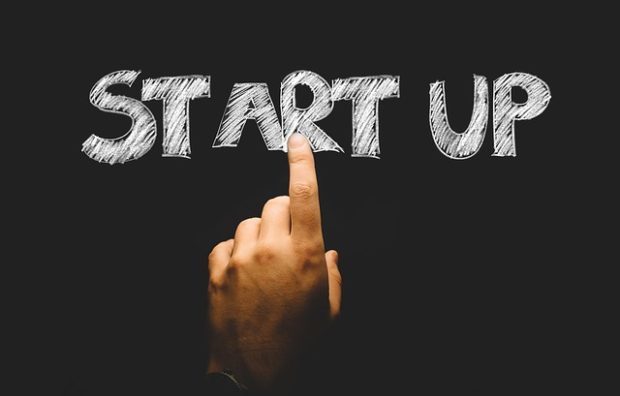11 Questions to Ask Yourself if You’re Thinking about Starting a Business

According to a recent article in the Atlantic, “Americans are starting companies at the fastest-ever recorded pace.” While COVID shuttered a staggering number of businesses – 200,000 more closed than in a normal year – the pandemic enabled entrepreneurs to launch roughly 500,000 more new businesses considered “likely to hire employees from mid-2020 to mid-2021.” The high demand for e-commerce services accelerated much of this entrepreneurial growth, as did the need for virtual conferencing and collaborative work technologies and related services. These online collaboration tools also facilitated the ability for people to start a business from home, like counseling practices, accounting businesses or even law firms.
If you have been tempted to join the Startup Boom prompted by the pandemic, the Entrepreneurial Reflection Questions below are meant to help you deepen your thoughts about your enterprising prowess. If working for others makes you feel that you lose a bit of yourself each day, you may be certain that business ownership is your true path. However, if you’re still equivocating, it helps to consider what traits are most favorable for an entrepreneur to possess. While hanging your shingle may seem like a more flexible option, it is by no means the path of least resistance.
Uncertainty, doubt, fear and anxiety are often steady companions, and the sad reality is that one-third of businesses fail within the first year; half of businesses, within five years; and two-thirds, within ten years. Successful business owners work long hours, often deferring their own paychecks to fairly compensate their employees, and spend years refining a business concept until it turns a profit.
When asked what single quality stands out as the most important entrepreneurial trait, many experts cite determination – that steely-eyed commitment to a vision to which they are committed that keeps their hands on the wheel steady as they confront unforeseen obstacles, ignore naysayers and stay true to their course despite the odds. Almost paradoxically, others claim that a certain flexibility serves entrepreneurs who demonstrate the ability to maneuver with agility through uncertain markets and changing technologies and demographics and anticipate and adjust to trends.
Though seemingly opposite traits, it could be true that both determination and flexibility are shared traits among successful business owners. It seems strangely logical that the ability to both follow through despite the odds yet adapt as needed could, in the right person, prove complementary. These shared traits could conspire to make this person less risk adverse, another characteristic commonly attributed to entrepreneurs, since they have proven to themselves over time that they could endure any situation if they were both determined yet flexible enough to persevere.

When you ask yourself whether you have what it takes to start a business, be realistic, but also consider the possibility that whatever deficits you possess could easily be supported by another professional, either as an employee or freelancer. The question isn’t whether you can fill any role that a business might expect of you – it’s whether you’re willing to stretch yourself to consider that you could learn things seemingly outside your wheelhouse. This imaginative plasticity, I believe, is the biggest predictor of entrepreneurial success and satisfaction.
By imaginative plasticity, I don’t mean your ability to daydream (although that is a sign of high creativity). I’m talking about your ability to learn and imagine ideas that others find hard to conceive. It is hard to measure, I’ll give you that, but we usually recognize it in others when we see it. I’m not saying you have to be as visionary as Steve Jobs or Nikola Tesla, but I have observed that a certain willingness to envision possibilities in the face of uncertainty is notably apparent in the personalities of successful entrepreneurs. (Listen to any episode of the How I Built This podcast if you don’t believe me, and I think you’ll see what I mean.)
Tasks that you find dreadful – bookkeeping, waiting on customers, de-bugging software glitches – can all be easily outsourced, but some responsibilities cannot be delegated. Among these are the ability to lead and craft a vision that others will follow, a willingness to strategize and make decisions, the curiosity to learn new things and the capacity to practice and prioritize self care to avoid burnout.
I wanted to present a handy list to which you could refer and check the boxes to see if I list the qualities you possess. While the Entrepreneurial Assessment Quiz scratches the surface of entrepreneurial leanings, I think that considering whether you have the drive for starting a business lies in a deeper place. You have to be really clear that you are committed to entrepreneurship and that no other option will lead to the life you really want and clearly understand that the road ahead will have potholes, frustratingly windy paths, confusing intersections and, at times, incoherent signs with spray-painted skull heads and indecipherable graffiti.
I am by no means down on entrepreneurship. I will be the first to tell you (shout from the rooftops even) that it offers rich rewards, including freedom, creativity, collaborative opportunities, self-discovery, autonomy, adventure, and, in time, the potential to make a decent living. But it’s a bit like that thing someone once said about the truth – it will set you free, but first it will kick your ass.

Entrepreneurial Reflection Questions
To help put you in touch with your more in-depth thoughts on entrepreneurship, answer the questions below.
- How do you feel about risk? What is the riskiest thing you have done?
- When you think about times you have taken risks, do you regret the results or feel good about them?
- Do you believe yourself to be an intuitive individual? Why or why not?
- Name 3 long-term projects that you have been a part of, either in a work, volunteer or academic setting. Write about your role in each project. What did you do? How much did you enjoy your role? When did you feel like you were the most engaged?
- Among the role(s) in which you were the most engaged, was it because your role required or asked you to take your own initiative and feel things out or was it because what was expected of you so clearly laid out? Which did you enjoy more – envisioning what the final project would look like or working and collaborating with others?
- What traits do you notice in the entrepreneurial people you know personally or admire from afar? Which of these traits do you admire most? Do you possess them? If not, can you think of ways in which you could acquire them?
- Do you find more satisfaction in thinking about the future or in working on things in the present?
- When you work for other people do you often find yourself thinking, “This project/company/product/system would be SO much better if we did it like (insert one of your brilliant ideas)”? Write about a time that happened in your most recent or current work experience?
- Do you tend to be optimistic yet pragmatic? Do you tend to see possibilities when solving complicated problems? What is an example of this in your work or personal life history?
- How persistent are you? Are you willing to network, either in person or through social media or work to perfect your SEO to attract clients and customers through your website and other web presences? If you plan to operate a client-facing brick-and-mortar business, do you think you’ll reach out to your business neighbors and neighborhood residents? Does that part of it excite you or make you feel shy? If it’s not your thing, are you willing to hire people who would be “ambassadors” for your business?
- How do you find ways to improve processes in your work? Does this bring you satisfaction? If so, how? Does it frustrate you when you have no say in improving processes in your workplace?
This guest post was authored by Kristin Schuchman
Kristin is a certified business coach and member of the Forbes Coaching Council. She has helmed successful businesses for more than twenty years, including the award-winning Nervy Girl magazine. She owns a career consulting practice called Spark a Career and a coworking space called Brightside Space. Her new book, Jump Start: How to redirect a career that has stalled, lost direction or reached a crossroads,offers a ten-step approach incorporating a mix of introspective workbook activities, reflective reading on factors that contribute to long-term professional engagement, an overview of industries that offer creative expression and meaning, in a tactical how-to manual on poising oneself for a career change. For more information see KristinSchuchman.com

